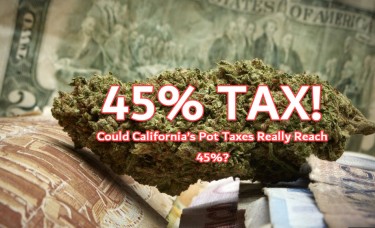
Colorado is now preparing to adjust its tax system to accommodate state legalization in the future
https://www.westword.com/marijuana/colorado-changing-marijuana-cultivation-taxes-federal-legalization-anticipation-12602319
I know every hippie since the 1960s has been saying, “It’s going to be legal for the next five years, man, you’ll see!” This time around, however, the proverbial hippie might be right.
Never before have we seen state legalization as close to reality as it is today – especially as the state of Colorado is beginning to prepare for that inevitability. Colorado isn’t the first state to start thinking about “interstate trade” and its place in the national cannabis market – states like Oregon have already prepared some sort of interstate policy.
However, Colorado was the example state for legalization. While California could have more revenue potential, Colorado set the national standard for “good legalization.” They have one of the most mature cannabis markets in the US, and their legalization model has even influenced other countries to follow suit.
However, while Colorado currently has a robust market, it is actually quite small compared to other potential monster states like California, New York, and similar locations. The fact is, these other states can produce Colorado and ship cheaper cannabis to more locations.
Hence, it is important that the state make long-term decisions and position itself for the inevitable legalization of cannabis at the federal level.
Fortunately, since they are the mature industry, Colorado officials are starting to figure out how they are going to change the tax system to be competitive on a national playing field. Currently, the state is putting a 15% excise tax on wholesale cannabis – combined with federal taxes and suddenly the cost of doing business in Colorado is getting ridiculously high.
This could lead companies to relocate their businesses to states that have more competitive tax plans, which would hurt the Colorado market significantly.
Lawmakers are pushing the idea of abolishing excise tax altogether, but this is cutting the state’s tax revenue by over a hundred million dollars. The state depends on it, and it has to shift the burden elsewhere.
The tax burden will most likely be passed on to the consumer in the form of a higher sales tax. This is what Bia Campbell from VS Strategies says.
“We don’t want to enable the state not to get that [funding]”Said Campbell during a session on October 18th on the matter. “For me, the answer to that is sales tax. If we get rid of wholesale excise taxes and pour the revenue into sales taxes, we will solve many of the problems that other people raised on that call. And that would be a change Colorado lawmakers could make in 2023. “- Source
This is because interstate trade is sure to follow post-federal legalization. This means that the rules of the game will change drastically. Products made in Colorado will not be able to compete with other states in a national market.
Truman Bradley, executive director of the Marijuana Industry Group, believes that the revision of government regulations and production limits will ensure Colorado’s competitiveness in the larger market.
“Companies and industries are ready [for federal legalization], and we like to think we’re a big industry, but we’re not. We need to talk about a really deliberate introduction of interstate trade, ”Bradley said during the MED meeting. “Some people think, ‘Federal legalization? Boom. Continue to play.’ But I have concerns about what this does to our cultivators in the state. Of course there will be a federal tax. “
It is for this reason that lawmakers are considering cutting the excise duty by 15% and shifting the burden to another sector – probably the consumer, but we will have to wait and see what happens.
National market and international market
One thing Colorado also needs to consider is that Mexico is about to get some sort of legislation on the books. This was said by a top senator who commented that the government was ready to take action.
Once the United States legalized it at the federal level, it only makes sense that there would be a North American cannabis trade between Mexico, the US, and Canada.
Mexico has very cheap labor and more favorable weather than most of the United States. There are a few states in Mexico that they call “The Eternal Spring” that are located near volcanoes – which gives them the same type of soil as California, except with a longer growing season.
Mexico will most likely also allow vertical integration, which means that many American companies will keep an eye on the Mexican market in order to establish themselves there.
How will this affect the national market?
For starters, cheaper production means lower costs – which means more competitive prices. This would mean that the “Walmarts of Weed” would most likely opt for imported cannabis, which would make the “standard product” more accessible to a wider market.
Of course there will still be American hemp and cannabis cultivation – but it will be interesting to see how it develops in the international market. Right now there are Colorado officials who consider all of these elements and more.
The world is rapidly changing gears – I’m still not sure if we are headed for a more invasive dystopian future or one in which we can reach interstellar space travel and colonize other planets to grow weeds on.
SPACE GRAY!
For now, Colorado needs to go through state legalization first and see how they’re going to play the international game. They currently have the tactical advantage and years of experience – but within a larger market, other states and countries would adapt over time and the conditions of competition would even out.
What then happens is that cannabis evolves into something completely different – a commodity that is readily available in various presentations at any major retailer. From leisure to medicine – we will all be surprised how this industry will develop over the next ten years.
CONTROL FEDERAL CANNABIS, READ MORE ..

25% FEDERAL MARIJUANA TAXES ARE PART OF THE CACO ACT
OR..

CALIFORNIA CANNABIS TAXES COULD REACH 45% BEFORE FEDERAL LEGALIZATION!

Post a comment: